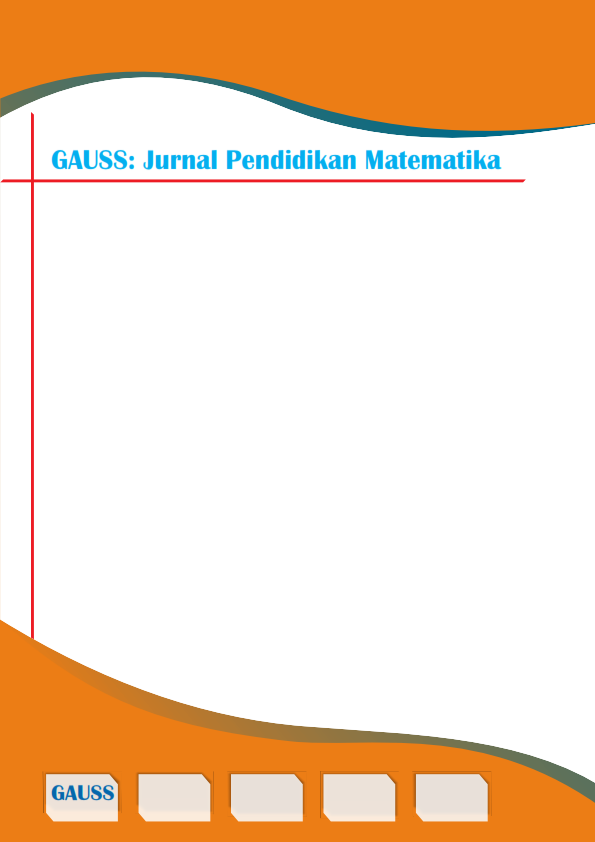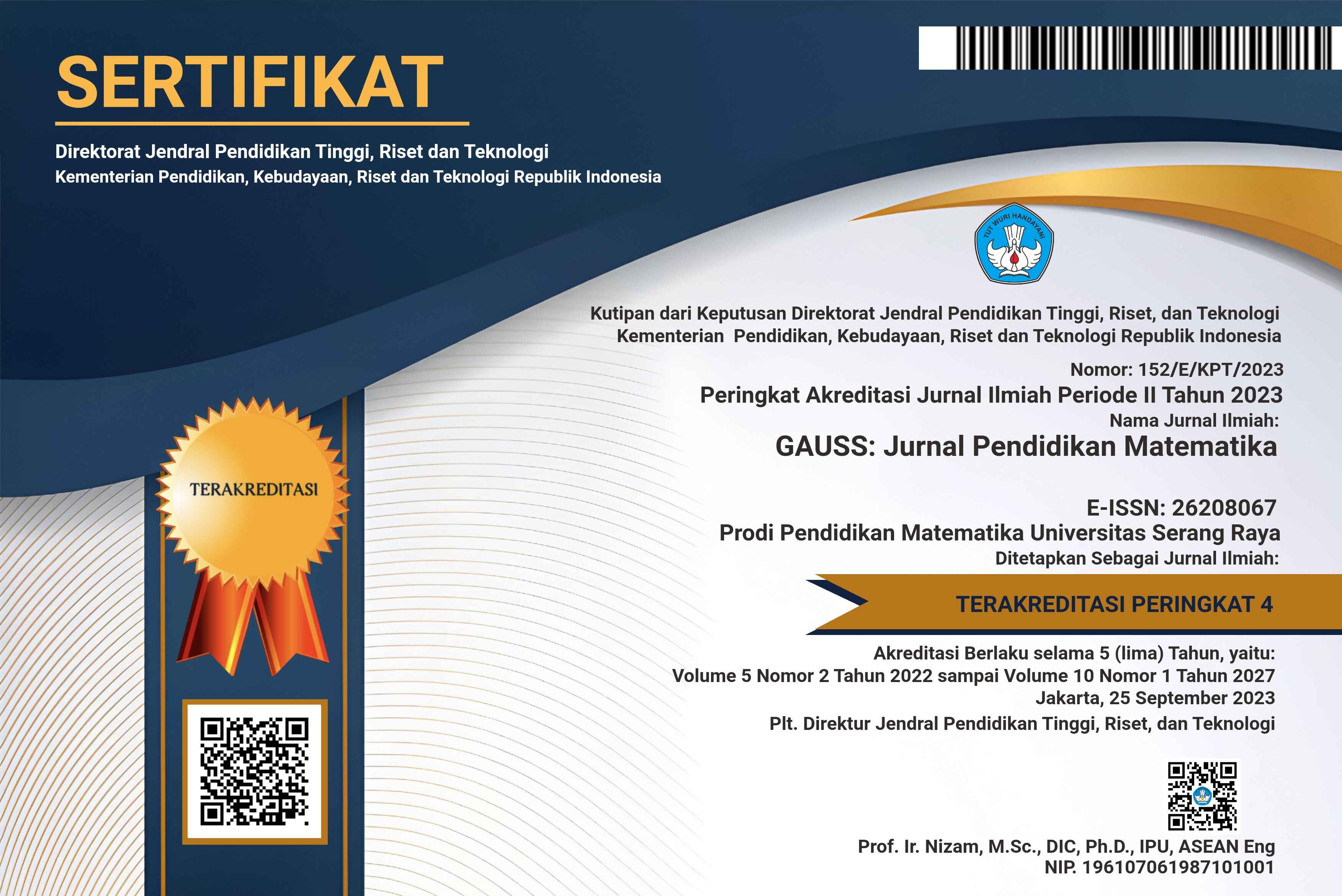Peningkatan Aktivitas Siswa dengan Penerapan Pendekatan Open-Ended Berbasis PAIKEM
DOI:
https://doi.org/10.30656/gauss.v3i1.2170Abstrak
Tujuan penelitian untuk meningkatan aktifitas belajar siswa kelas VII SMP Negeri 6 kabupaten sorong melalui penerapan pendekatan open – ended Berbasis PAIKEM.Penelitian ini merupakan penelitian Quasi Eksperimen, Teknik pengumpulan data yang digunakan berupa metode tes hasil belajar, aktivitas belajar, dan angket respon siswa. Instrumen Penelitian di Validasi oleh Validator. Hasil penelitian Pada uji-t diperoleh nilai uji t yaitu sebesar 4.851 dengan sebesar 0,000 nilai. Terdapat peningkatan aktivitas belajar siswa pada kelas yang diajar dengan diterapkan pendekatan open-ended berbasis PAIKEM dapat dilihat pada observasi aktivitas belajar siswa kelas eksperimen pada pertemuan Pertama Jumlah keseluruhannya sebesar 59% dan pertemuan terakhir sebesar 69% sedangkan kelas kontrol pertemuan pertama sebesar 43%, pertemuan terakhir sebesar 50% dan respon siswa kelas eksperimen selama pembelajaran berlangsung rata-rata jawaban siswa adalah 72,15 berada pada kategori Baik Sekali. Dengan demikian Penerapan pendekatan open-ended berbasis PAIKEM dapat meningkatkan aktifitas belajar siswa kelas VII SMP Negeri 6 Kabupaten Sorong.
Unduhan
Unduhan
Diterbitkan
Terbitan
Bagian
Lisensi
Authors who publish articles in GAUSS : JURNAL PENDIDIKAN MATEMATIKA agree to the following terms:
- Authors retain copyright and grant the journal the right of first publication with the work simultaneously licensed under a Creative Commons Attribution-ShareAlike 4.0 International License that allows others to share the work with an acknowledgment of the work's authorship and initial publication in this journal.
- Authors are able to enter into separate, additional contractual arrangements for the non-exclusive distribution of the journal's published version of the work (e.g., post it to an institutional repository or publish it in a book), with an acknowledgment of its initial publication in this journal.
- Authors are permitted and encouraged to post their work online (e.g., in institutional repositories or on their website) before and during the submission process, as it can lead to productive exchanges, as well as earlier and greater citation of published work (See The Effect of Open Access).




